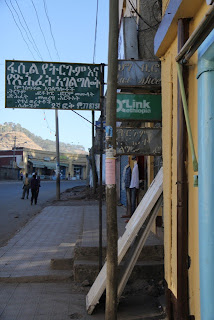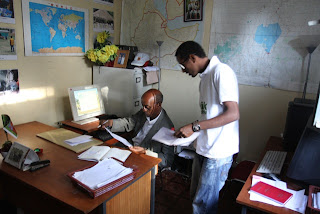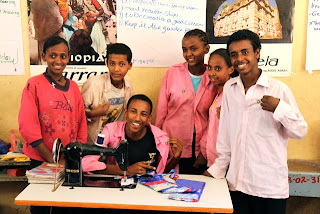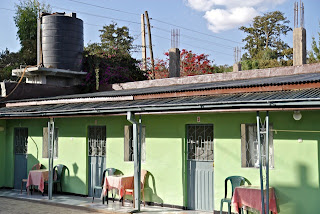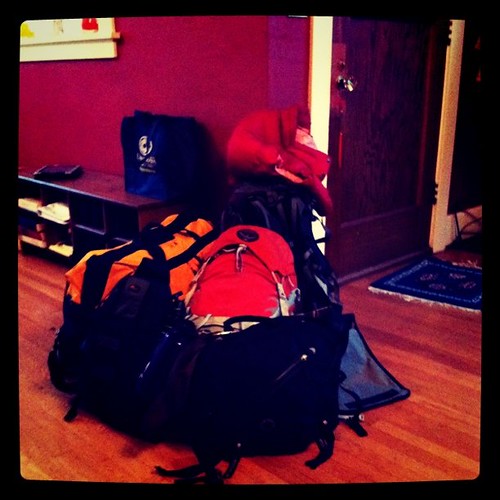To a boy who shines shoes, everyone’s feet look dull. When I asked Getenet, our guide in the Simians, what he thought was the most important aspect contributing to Ethiopia’s progress, he declared it was expanding tourism. When I asked Ben, a diplomat we met from the UK embassy, he suggested it was to liberalize market systems and open the country to free trade. Belayneh, the director of the charity I worked for in Gondar, and perhaps the local with which I formed the closest friendship, firmly believes that Ethiopia’s progress is married to its education system.
Maybe it’s because I’m the son of a teacher, but I tend to lean towards education as perhaps being the most fundamental, and I’m truly grateful for the time I spent with Link Ethiopia and learning about the school system here. While I doubt that shiny shoes will contribute very much to this country’s undeniable direction towards progress and development, I believe that all of these angles hold some truth. The human potential in Ethiopia is its most valuable asset, in my opinion, and Link Ethiopia is providing a foundation for people to stand on and stretch their minds into the developing world.
Link Ethiopia is a UK-based charity with offices in London and Gondar. The idea was forged 15 years ago when Chris, its founder, visited Ethiopia and decided to connect a local school in Gondar with a sponsoring school from his home in England. Today there are over 60 schools in Ethiopia linked to over 80 schools in the UK, and now the US as well. The anatomy of Link Ethiopia’s connections are composed in four parts. First, students at both schools are shepherded by their teachers into a relationship as pen-pals. Children exchange letters and photographs, providing an opportunity to practice writing skills in both schools, establishing a rich cultural exchange between dramatically different countries, and cultivating honest friendships between young people born into worlds divided by more than distance.
Once connected, the second aspect of the Link program comes in the form of development projects for the schools in Ethiopia. Again, teachers and Link Coordinators engage children from both schools in a discussion about what is most needed, and together they work towards that goal. Projects here start at the most basic of levels; providing clean water, adequate toilets, classrooms, chairs and desks. It’s humbling to realize that before books and pencils, these are the resources needed to provide an education. There is meaningful debate in our own country over how to run our schools, and how to keep our classrooms from becoming overcrowded, for example. We never choose between clean water and toilets. And I’ve always taken for granted from the outset of this discussion that the classroom itself existed.
Link Ethiopia offers two more connections to its schools that take on a form similar to many charitable organizations. Individual children can be sponsored for a rather modest monthly contribution that provides assistance with the very basic needs of food, clothing, and school materials. ‘Link‘ establishes the relationship to the child, and ensures that the money is finding its intention, most importantly, that the child remains in school. Finally, there is a conduit for contribution from people like me through a volunteer program. Most people signing up to work with Link Ethiopia do so for three to six months. People come from all over the world, mainly to teach English, although in some of the more developed schools, there are opportunities to teach computer skills and even to coach football (soccer to all you Americans).
The office in Gondar is anchored by Belayneh Shawaye, the director. He is assisted by two full-time staff members, Mulugeta and Elsa; both bright, charming, and dedicated professionals. The three of them work tirelessly to coordinate with local schools and their sponsors, oversee development projects, and support the revolving team of volunteers both in living and working in Ethiopia. They are kind and welcoming, true believers in the cause of the organization, and radiant with gratitude for the contributions by so many foreigners to their own country and its schools.
When I arrived in late January, the cadre of volunteers consisted of seven other people: Caspar and Bridget, an enthusiastic middle-aged couple from Holland; a sharp and friendly Kiwi gal named Alex who is living in Gondar for a year with her husband, a pediatrician working at the hospital; a world-traveler named Jannhan from the US; Paula, a very keen and deeply caring woman from the UK teaching children how to sew; and another bright and cheery Brit named Alan who was passing through to teach for a few weeks on his fifth visit to Ethiopia. As I only had three weeks myself, Belayneh, the Ethiopian director of the charity, and I, decided that I could be most effective by taking a look at the computers in the office and at a couple of the schools.
There are clearly many challenges in Ethiopia. Most of us in the US and UK may continue to harbor images from the famine in the 80’s of a country on its knees. I personally remember helpless children with distended bellies wiping flies out of their eyes, and a UNICEF box showing up at the dinner table every holiday season gently asking for spare change. But this is not the country Heidi and I have come to know. There is a vivacious, friendly, and hopeful spirit here that is just beginning to find some traction, and famine is a distant, if painful, memory.
While a more transparent democracy, free trade, expanded tourism, and even shinier shoes are all aspects of this country’s inevitable development, education remains the bedrock. Link Ethiopia is clearly an organization more interested in providing protein than sugar to a country that still needs sustenance. They are investing in Ethiopia at a generational scale through education, and I believe they are making progress.
For more information on Link Ethiopia, its school sponsorship and volunteer programs, please visit their website: www.linkethiopia.org
